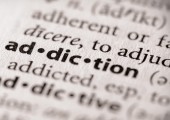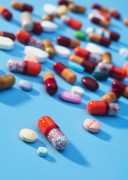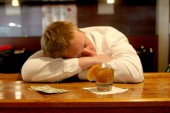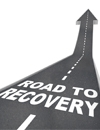Medicating Mental Illness: Addictive Behavior
When I read the heading of this post, the words mental illness and addiction sort of mold together, like a candle, dripping wax into the same spot. Mental illness and addiction go hand in hand--those diagnosed with a mental illness have a much higher incidence of addiction, this is known in the psychiatric community as co-morbid illness. Fancy words to apply to the content of this post.
For the purposes of this post, the word addiction is not just tied to the use of drugs, no, it encompasses all forms of addiction because the reasons for abusing substances, abusing oneself, are similar.
Defining Addiction
 First, let's quickly apply some words to a complicated illness, a disease--the disease of addiction. A disease that kills people. People just like you and I, nice people who struggle sometimes, people who smile and laugh.
First, let's quickly apply some words to a complicated illness, a disease--the disease of addiction. A disease that kills people. People just like you and I, nice people who struggle sometimes, people who smile and laugh.
Addiction is defined by the inability to cease using a substance, or negative behavior, that alters mood. This does not have to be an illegal substance or illicit behavior.
Yes, I have given you one definition. I only have so many words to play around with here and addiction in my life, well, it almost brought me to a very early grave.
My Experience With Addiction
Go ahead--call me a narcissist for talking about my life so often within these blogs, but I have some experience under my belt. We all do.
 Diagnosed with bipolar disorder at the age of twelve, I was stabilized at the age of fifteen. Prior to that, I struggled with anorexia and bulimia. These are addictions. They are defined by an inability to stop the behavior. I could not.
Diagnosed with bipolar disorder at the age of twelve, I was stabilized at the age of fifteen. Prior to that, I struggled with anorexia and bulimia. These are addictions. They are defined by an inability to stop the behavior. I could not.
Then, age eighteen, flourishing in college, I was introduced to cocaine. The five years that followed: drugs, any drug I could get my hands on, alcohol, seizures, an attempt at rehab only to falter over and over again. Fall flat on my face searching for hands to pick me up.
Sobriety, sweet sobriety, at age twenty-three. Twenty-seven now, I've kicked the last bad addiction: cigarettes. Three weeks ago, today (patting myself on the back over here). Still, I struggle. I have to make sure I do not focus on food, exercise too much, spend to much money, to become addicted to people because, yes, you can become addicted to people.
Co-dependant relationships are also addictive (that's another post).
So, that's my summary. Let's get back to the topic.
Self-Medicating Mental Illness
 You might be thinking: "Yes, I know, people with a mental illness abuse substances in order to mask feelings!" And this much is true, but it is also important to explore why those of us with a mental illness are inclined to engage in addictive, negative, behavior:
You might be thinking: "Yes, I know, people with a mental illness abuse substances in order to mask feelings!" And this much is true, but it is also important to explore why those of us with a mental illness are inclined to engage in addictive, negative, behavior:
>Chemically, those diagnosed with a mental illness have a natural propinquity to addictive behavior.
>Depression. When depressed stimulants can briefly change your mood--you will crash harder later, but at the time, any reprieve feels better than absolute blackness.
>Anxiety. Alcohol, for example, slows down your central nervous system (CNS) and, initially, you feel relieved of it. Medications like Valium, benzodiazepines with a huge tolerance for addiction, act in the same fashion and are dreadful to wean off of.
>Mania or feeling out of control. I have been known, when feeling a bit speedy, to find myself in the mall. Walking quickly from aisle to aisle. Wanting the feeling to stop. I would arrive home, bags in hand, and collapse on my bed. Defeated. Again and again. 'Rock Bottom' had many layers in my life.
>Self-injury among those with mental illness is common. I belong in the group. Scars chase my once white arms, despite the years that have past. Self-injury is similar to disordered eating: A need to feel in control when life becomes out of control.
And that's a good, albeit very limited, summary: Addiction, in its many forms, is both a way to self-medicate feelings and feel in control when our lives seem to be out of control.
In order to recover from mental illness, we need to feel.
Allowing Yourself to Feel Emotions
 Allowing yourself to feel emotions is painful. It is enlightening. It is similar to exposing yourself to light for the first time: Initially shocking, you want to hide, but soon you appreciate the warmth.
Allowing yourself to feel emotions is painful. It is enlightening. It is similar to exposing yourself to light for the first time: Initially shocking, you want to hide, but soon you appreciate the warmth.
You cannot recover from mental illness if you are engaging in addictive behavior. Psychiatric medication does not mix well with chemicals and erratic behavior works only to make recovery a stagnant, impossible process.
We want to be well, all of us, and we want it badly--I hope, badly enough to stay away from the very things that can kill us.
Just remember: Allow yourself to feel. That's human.
Let me stress this: If you are currently engaging in addictive behavior please seek help. There are many fantastic resources for those willing to recover. Life without substance, addictive behavior, is worth living.
APA Reference
Jeanne, N.
(2012, March 26). Medicating Mental Illness: Addictive Behavior, HealthyPlace. Retrieved
on 2024, April 23 from https://www.healthyplace.com/blogs/recoveringfrommentalillness/2012/03/medicating-mental-illness-addictive-behaviour
Author: Natalie Jeanne Champagne
The perusal of Your article persuade me to statement that mental disorders implicate a complex therapeutic approaching. This treatment is indeed three dimensional biopsychosocial intervention, where medication indicates the main discourse. As far as is concerned to addiction, I could to say that patient with mental difficulties has got that belongs to anxiety circle. The same leads to uncontrollable use of psychotropic medication, as well as unpredictable behave.This undesirable solution mostly depend on oneself chose. Therefore, It ought to take care which option of action we would to undertake in order to overcome anxious experience. There are numerous serviceable activities that will helps us to manage these trouble life events, without chemical clutch, or antisocial discharge actions. Of course, psychiatric patient under medication should be alert to this recommendation.